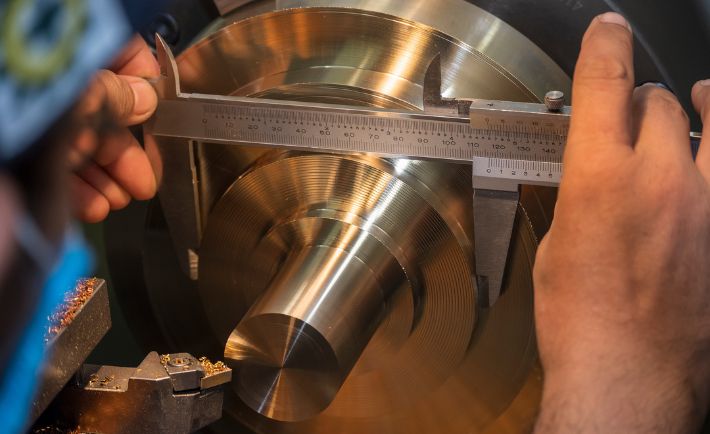
Manufacturers use measurement tools to ensure they are making consistent, high-quality products. In this blog post, we’ll examine five measuring instruments manufacturing engineers should know about.
Vernier Calipers
Vernier calipers are instruments used to measure product length, diameter, and thickness. Though similar to standard rulers, they offer higher accuracy than a ruler would. Like many of the measuring instruments we will discuss in this blog, they are also used in various industries outside of manufacturing to ensure precision.
Micrometers
Micrometers, or micrometer screw gauges, are used for measuring small dimensions with high accuracy. They measure dimensions such as diameters, depths, and thicknesses. Because they offer precise measurements for small components, they are commonly used in the manufacturing of electronic parts.
Air Gages
Air gages use air pressure to provide precise measurements of an item. Air gages are another indispensable measurement instrument when working with small or delicate components, as they provide detailed, non-contact measurements. Manufacturers rely on air gages to ensure precision when working with sensitive components, such as in electronic or aerospace manufacturing settings.
Coordinate Measuring Machines
Coordinate measuring machines (CMMs) provide three-dimensional measurements of objects. They use probes that sense points on the object being measured. These probes may be mechanical, optical, or laser. CMMs allow engineers to look at the entire object, ensuring accuracy and quality during manufacturing.
Dial Bore Gages
Dial bore gages measure the inner dimensions of a diameter. These tools are commonly used in the automotive industry and other manufacturing settings. With a dial bore gage, manufacturers can measure the inside diameter and depth of a hole, cylinder, or pipe.
Manufacturing engineers work with a wide range of tools every day. Now that you’re better acquainted with some of the measuring instruments manufacturing engineers should know, you can better understand what goes into ensuring quality and consistency during the manufacturing process.




